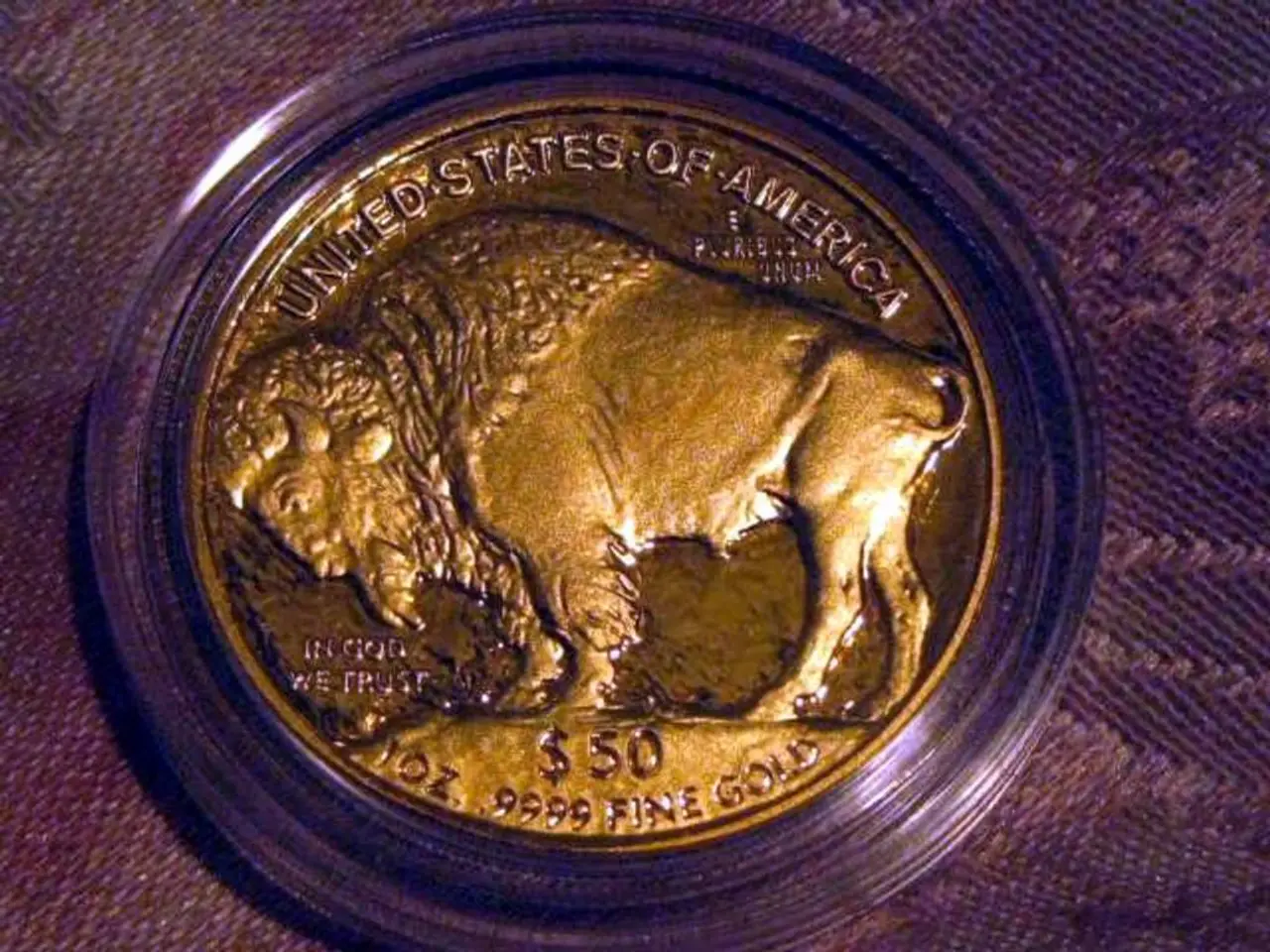Hearing focus on legislation concerning Trump's proposed digital currency, the stablecoin
In a recent congressional hearing, the focus shifted towards potential conflicts of interest and foreign influence in the growing stablecoin market, particularly surrounding the Trump family's planned stablecoin, USD1.
The hearing, a stark contrast to the Senate's recent discussion on substantive issues, saw Representative Maxine Waters and Congressman Liccardo propose amendments aimed at preventing members of the administration or their families from gaining advance notice of rulemaking, prohibiting federal officials from sponsoring a stablecoin, and blocking the government from using a stablecoin affiliated with the administration.
The proposed amendments are centred around the Guiding and Establishing National Innovation for U.S. Stablecoins Act of 2025 (GENIUS Act). This legislation seeks to expand regulatory oversight, with a focus on preventing conflicts of interest and foreign influence, especially for large nonbank stablecoin issuers like the Trump family's stablecoin plans.
Key elements of the GENIUS Act include a licensing regime for permitted payment stablecoin issuers, regulatory focus on financial stability, consumer protection, anti-money laundering (AML), and counter-terrorism financing safeguards, and expanded supervisory oversight for large nonbank issuers.
Despite no specific amendment being explicitly tied to the Trump family, the GENIUS Act provides a legal framework that addresses systemic risks in the stablecoin market, including preventing abuse by influential figures or foreign actors. This is achieved through standardising transparency and accountability.
Congressman Lynch proposed an amendment to restrict stablecoin issuer activities due to bailout concerns, with another amendment by Representative Sherman aimed at blocking bailouts altogether. However, most Democrat amendments were rejected.
The Democrats also proposed an amendment to reintroduce the separation of stablecoins and commerce. Meanwhile, the Republicans have not included a clause restricting businesses from issuing stablecoins.
Representative Carstens raised concerns about World Liberty Financial's connection to Justin Sun, suggesting it may violate the Constitution's emoluments clause. World Liberty stablecoin is causing concern for Representative Meeks in bipartisan negotiations.
Congressman Foster questioned whether State-regulated stablecoins would be bailed out by the State, while Representative Meeks expressed the need for certainty in legislation and supports the Act's state pathway option but wants to tighten some details.
The bill's sponsor, Congressman Steil, stated that the amendments were not necessary because the legislation treats issuers of all stripes the same. However, Representative Lynch noted that this may not be true for the President who is in a position of trust and has the capacity to support a bailout.
Representative Scott expressed concern about the potential conflicts of interest created by the Trump family's stablecoin, fearing it could tarnish both the family and himself. Several Democrats supported the bill, but have serious issues with the Trump family stablecoin.
The STABLE Act was discussed in a markup hearing today, with the focus remaining on ensuring transparency, accountability, and protecting the stability of the financial system in the growing stablecoin market.
Read also:
- President von der Leyen's address at the Fourth Renewable Hydrogen Summit, delivered remotely
- Unveiling Innovation in Propulsion: A Deep Dive into the Advantages and Obstacles of Magnetic Engines
- Intensified farm machinery emissions posing challenges to China's net-zero targets
- EU Fuel Ban Alerts Mercedes Boss of Potential Crisis








